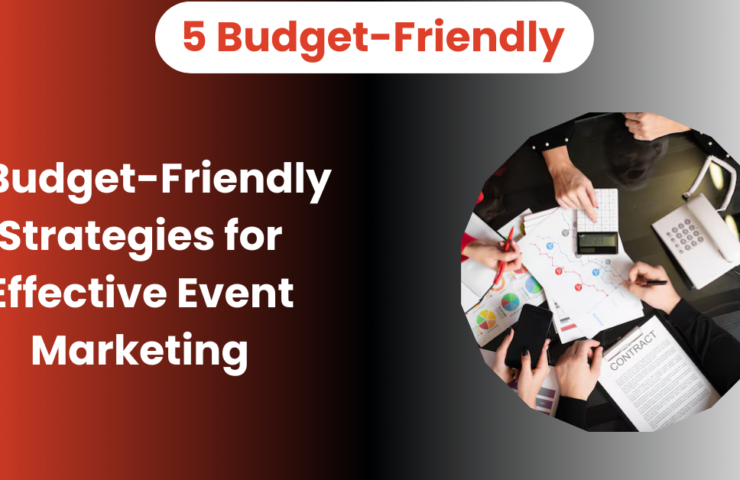Event planning can be exciting, but perhaps the marketing part has you trembling in your boots when plans to work with a small budget become evident. Just as in-person events are coming back, smart marketers have had to find clever ways to market their events on a budget. Regardless of whether you’re looking to fill event venues or virtual spaces, digital event promotion is highly cost-effective. So here are 5 ways that we can make event marketing work on a budget.
1. Leverage Social Media Wisely
Social media platforms give you unlimited access to a worldwide array of subscribers who usually charge nothing or next-to-nothing. First, create a compelling Facebook page and raise awareness via Instagram with Twitter. Ensuring that you post consistently about your event, give sneak peeks, and use the relevant hashtags to attract who your target audience will be.
Content generated by users: Organise a contest for attendees to post about your event on their own social networks, in exchange for the chance to win free tickets or exclusive experiences. Besides getting the word out, this also helps create a community around your event.
2. Use Email Marketing to Your Advantage
E-Mail is still the king of event promotion. Build and produce targeted email campaigns filled with valuable content that also serves CTA to sign up. But you are free to separate them out by the type of event, level of interest, or engagement outside of events – so feel free to mould these based on your own experience.
With a well-timed drip campaign, you can sequentially introduce aspects of your event (speakers, special activities, or early-bird pricing), each email whetting the appetite for what is to come. The faster answer: use bold, visible designs and call-to-actions that are clear and concise.
3. Partner with and Engage Key Influencers
Strategic partnerships can broaden your reach while saving you money. Find influencers or businesses in your industry whose audiences match your target market. They might be able to assist in publicising your event with social media shout-outs, newsletters, or even a giveaway.
Working in tandem with local businesses can help too. For instance, if it’s a food event, you could partner with local restaurants to cross-promote and hopefully bring some of their regulars to your event.
4. Create Compelling Content
Content marketing can completely change how you promote events. Write blog posts, create infographics, or produce videos that reinforce what your audience cares about while subtly connecting the dots to your event. For example, if you have planned a tech event, list industry articles or profiles of your keynote speakers.
Creating flip books or brochures with platforms like Issuu allows you to share all that promotional design-work in easily distributable digital formats. This ensures a more engaging presence and helps build widespread knowledge about your event.
5. Build a Better Event Registration Form on Your Website
The website is the meeting point for all things event-related. This is where your event page comes into play, ensuring it looks visually appealing, is mobile-friendly, and easy to navigate. All the necessary information should be there: the agenda, lineup of speakers, price, and location — preferably through a simple registration process.
Use SEO tactics to improve your event’s visibility in search engines. Optimise your content around the target keywords your potential attendees might search for, and update it regularly to keep it fresh and relevant.
Conclusion
Marketing an event on a budget doesn’t have to be a hassle. With a mix of social media, email, influencer marketing, and engaging content creation — along with website optimization — you can promote your event effectively without burning a hole in your pocket. Be creative and resourceful, and your event will take off without breaking the bank! Happy planning!
